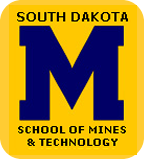 |
|
2003
Student Survey Data
The following student opinion surveys (SOS) from the
following courses were sampled: Met 232, Met/ME 443, Met/EnvE
321, Met/EnvE 320 and Math 373. The SOSs were
sampled to help determine if courses taught by MetE
program faculty meet the needs of our constituents. The constituents in these courses are
students enrolled from the following programs: Geological Engineering,
Environmental Engineering, Industrial Engineering and Mechanical Engineering. Table XX summarizes the courses and whether
they are required or elective. Table XX. Summary of courses sampled.
All data volunteered by
departmental faculty Student responses from the SOSs
were analyzed: 1) The instructor presented
material related to course objectives. 2) The instructors overall
instructional performance. Tables X and X summarize the findings from the
2002-2003 academic cycle. Table
X. Summary of responses from SOSs for question: “The
instructor presented material related to course objectives.”
All data volunteered by
departmental faculty Table
X. Summary of responses from SOSs for question:
“Overall instructor performance.”
All data volunteered by
departmental faculty It should be noted that the above responses are a
composite and involve both students from the programs noted above as well as MetE students. |